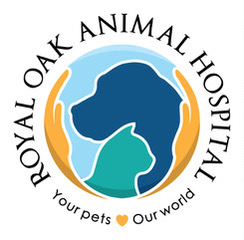Library
-
Sometimes it is necessary to use a special type of collar to prevent your dog from licking a healing would or incision. Be sure that your dog is comfortable and that the protective gear fits properly. If your dog is not adjusting easily to the cone, talk with your veterinarian. Medication can be prescribed to reduce anxiety so that your dog can be safe and calm.
-
Many dogs routinely greet people by jumping up on them. Jumping up can cause a person to be frightened or even injured. All dogs can be trained to greet people in a calm manner. Training should focus on rewarding desired behavior while being careful not to inadvertently reward the undesirable jumping behavior.
-
There are numerous reasons that a dog might soil the house with urine and/or stools. Determining the specific reason is essential for developing a treatment program. Dogs that soil the home continuously or intermittently from the time they were first obtained may not have been properly house-trained.
-
Urine marking is normal in both male and female dogs and can even occur in dogs who are spayed or neutered. The underlying cause for urine marking should be determined so that an appropriate treatment plan can be implemented. Management, prevention, and supervision are important for a good outcome.
-
Some dogs exhibit signs of distress when they are left alone. Separation related behaviors include vocalizing, panting, pacing, and house soiling. Treatment includes behavior modification and, in some cases, medication.
-
What is normal and what is not? The answer is: when the behavior is harmless or just annoying, it is probably normal. When the behavior is destructive, disruptive, or places people or other pets at risk, it is not normal. Addressing the problems early, before they become ingrained, is the best hope for avoiding future problems. Dogs will be dogs, but people are still ultimately responsible for them.
-
On your marks, get set, go! Dogs running, jumping, catching balls, making razor sharp turns, and racing to a finish line; that's the canine sport of flyball.
-
Dogs love to run. Dogs love to jump. Dogs love to swim. If your dog likes to do all three, why not investigate the relatively-new canine sport of Dock Diving?
-
Field trials focus on team-hunting and allow humans and their pet dogs to rekindle their hunting instincts in a fun, competitive format.
-
Treats are a great way to bond with your dog but are an additional source of calories that must be considered within the overall diet. Treats should be no more than 10% of your dog's daily calorie intake and, in greater quantities, can create a nutritional imbalance. Consider choosing lower calorie treats for your dog to avoid exceeding the 10% rule.


